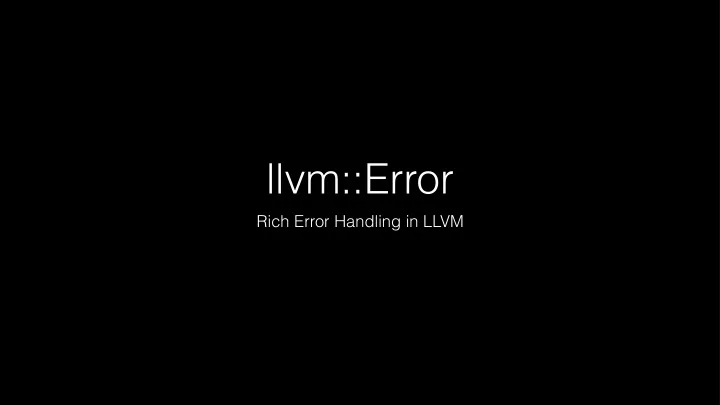

llvm::Error Rich Error Handling in LLVM
Error Handling History • LLVM’s APIs historically used ad-hoc approaches • bools, nullptrs, string errors… • std::error_code • C++ standard library error type • Enumerable errors only • Lack of enforcement — easy to drop errors
Exceptions • User defined error types • Type safe handlers • Once thrown, impossible to forget However… • Not actually zero-cost • Turned off in LLVM
llvm::Error • Error as return value: Error foo(…); Expected<T> bar(…); • User defined error types: class MyError : public ErrorInfo<MyError> { … }; • Errors must be checked before destruction
Idiomatic Usage Error foo(…); if (auto Err = foo(…)) return Err; Conversion to bool “checks” error
Idiomatic Usage Error foo(…); foo(…); Destruction of unchecked Error triggers abort
Type-safe Handlers Error foo(…); handleErrors( foo(…), [](MyError &M) { }, [](SomeOtherError &S) { }, …, );
Benefits • Safer: Avoid vulnerabilities due to missed errors • More descriptive: • LLVM ERROR: Malformed MachO file. becomes • truncated or malformed object (bad section index: 66 for symbol at index 8) • Supports error hierarchies (e.g. ObjectFileError)
Conclusion • Many utilities: • Interoperability with std::error_code and ErrorOr • Standard error types (StringError) • Exit-on-error idiom support for tool code • Check out Programmers Manual for usage
Recommend
More recommend